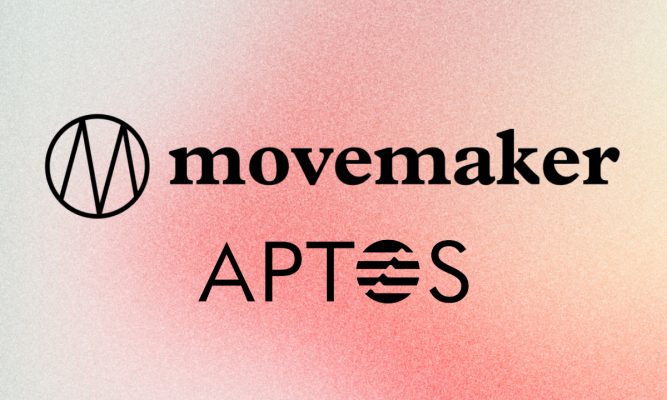The cryptocurrency journey has just reached an important junction. The regulatory debacle around cryptocurrencies encourages skepticism and instability, even though its potential for innovation and financial inclusion can not be denied. This is why the recent collaboration between 24 leading crypto companies in Taiwan to form the Virtual Asset Service Providers (VASP) Association, has stirred a conversation.
Led by BitoPro founder and CEO Titan Cheng and XREX chief revenue officer Winston Hsiao, this association aims to create a regulatory environment that promotes the growth of the global blockchain finance industry. However, the idea behind this collaboration raises questions: is this a sign of industry maturation or a way for self-preservation?
Taiwan’s Crypto Market: Young and Ambitious, But Unclear
Young investors dominate Taiwan’s crypto market. The statistics have it that in 2023, more than half of crypto investors, 52%, were between the ages of 18 and 24 years. This demographic of tech-savvy investors keeps on fuelling growth by being attracted by prospects of high returns associated with trade, crypto gambling, etc.
Of note in this sense is the sector of crypto gambling. Sites like CryptoCasinos.com track this evolving sector. A recent case highlighted the murky legal waters surrounding crypto gambling. A man has been charged with breaching Taiwan’s President and Vice President Election Recall Act following up on a bet he placed for 472.12 USDC on the outcome of the election. The story brings out the need for more deciphered laws and regulations around the use cases for cryptocurrencies, specifically areas that might be connected with illegal activities.
Industry Maturation: Building Bridges with Regulators
Historically, the cryptocurrency industry has operated within a blurred regulatory area. There have been so many uncertainties. These uncertainties have discouraged investors and caused a problem of doubt for businesses in the industry. A paradigm shift towards a more mature industry has been called on for ages, and the Taiwan VASP Association represents that. This collaboration has shown the willingness of cryptocurrency companies to engage in the regulation discussion, to create a regulatory framework that reduces risks and encourages innovation.
The collaboration presents an opportunity for a discussion with the Taiwan government. A precedence has been set and can be leveraged to negotiate for clear and comprehensive regulations, by using industry expertise. Clear regulations would encourage investors and build trust with users. This is a recipe for a strong cryptocurrency industry in that area, which can also be adopted globally.
Collaboration for Self-Preservation
The cryptocurrency industry is saddled with price fluctuations. This volatility coupled with the skepticism of some governments that has led to major restrictive policies, means these companies can pull their resources to journey through those challenges.
The companies that belong to the association can share best compliance practices along the lines of Cybersecurity and Anti Money Laundering (AML). Amid so many uncertainties in the industry, the association can pull its weight around every member for preservation and maintain a positive public image. Also, the experience these companies have in the association can be brought forward to advocate for policies that will promote a healthy environment both in Taiwan and globally. This unified voice can be more effective in influencing regulators than individual companies lobbying alone.
Weighing the Motivations: A Symbiotic Relationship
This collaboration looks like one for self-preservation on the surface, but a closer look shows a relationship between growth and responsible regulation that is symbiotic. The collaboration leads to designing effective guides without impacting innovation negatively. This way, self-preservation and the maturation of the industry are intertwined, leading to a more sustainable development.
Potential Challenges and the Road Ahead
The road ahead for the Taiwan VASP Association is not promised to be smooth. A 24-member association (expected to increase over time) is liable to disagreements and friction among its members due to slightly varying interests.
Another potential challenge is the relationship between the Association and the Taiwanese government, the Ministry of Justice, and the Financial Supervisory Commission (FSC). Although a close relationship was promised, changes in personnel and interests in these agencies can lead to friction along the line.
Potential Benefits for the Global Crypto Ecosystem
- Standardization of Regulations: If this Taiwanese model is successful, it could inspire regions to go the way of a collaborative approach. This could lead to a more standardized approach to regulations worldwide, and create a more stable environment for investors and businesses.
- Enhanced Legitimacy: By displaying the willingness to facilitate and promote rigorous but fair regulations, the industry can change its image associated with high risks.
- Knowledge Sharing: The global crypto industry can draw knowledge from the experience of the Taiwan VASP Association. Even if it fails, the crypto industry can study why it failed and develop a better method for such a collaborative venture.
Challenges of Global Implementation
While the Taiwanese model looks promising, and most people are looking forward to its success, here are some of the challenges its global implementation faces:
- Varying Regulatory Environments: Countries have different regulatory approaches towards cryptocurrency and every other sector. Some countries have outrightly banned cryptocurrency or have restricted policies, while others have gone the ‘flexible way’. These differences in regulatory ideologies can make implementing a universal model very difficult.
- Geopolitical Considerations: Countries will not apply a model that could disadvantage them strategically or economically compared to other countries and regions.
- Pace of Technological Innovation: With new technology comes new vulnerabilities and threats that can be exploited. Regulatory frameworks must be adaptable to keep pace with these changes to prevent stifling innovation.
The Need for International Collaboration
Despite these potential challenges with global implementation, it is undeniable that its successful implementation will be greatly beneficial. For this to become a reality, it is important to have an international collaboration between governments, regulators, and industry stakeholders. These collaborations could be in the form of:
- International Forums: Creating international forums for discussions by governments and industry stakeholders that will lead to more harmonized regulation.
- Information Sharing: Encouraging information sharing between regulatory bodies to stay updated with trends and emerging market risks.
- Joint Task Forces: Establishing joint task forces to combat specific problems, like creating a standardized KYC/AML policy.
Looking Ahead: The Future of Cryptocurrencies
The future of cryptocurrencies hinges on the industry’s ability to navigate the complex regulatory landscape. The Taiwan VASP Association’s initiative serves as a beacon of hope, demonstrating the potential for a collaborative approach that fosters innovation while mitigating risks. As more countries follow suit, the global cryptocurrency ecosystem can evolve towards a more mature and sustainable future, unlocking its full potential to revolutionize financial services and empower individuals worldwide.


